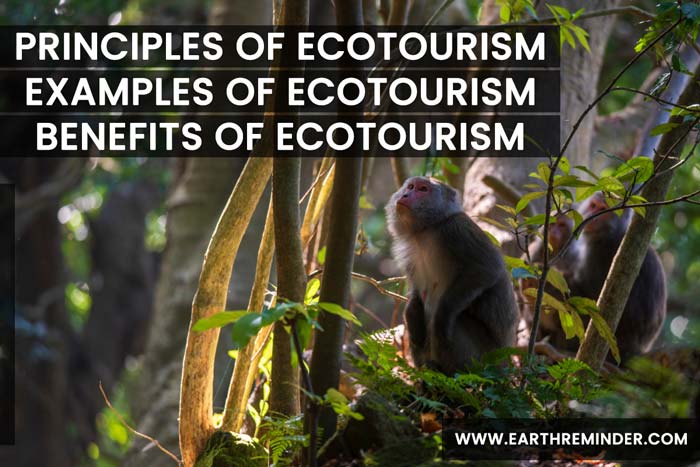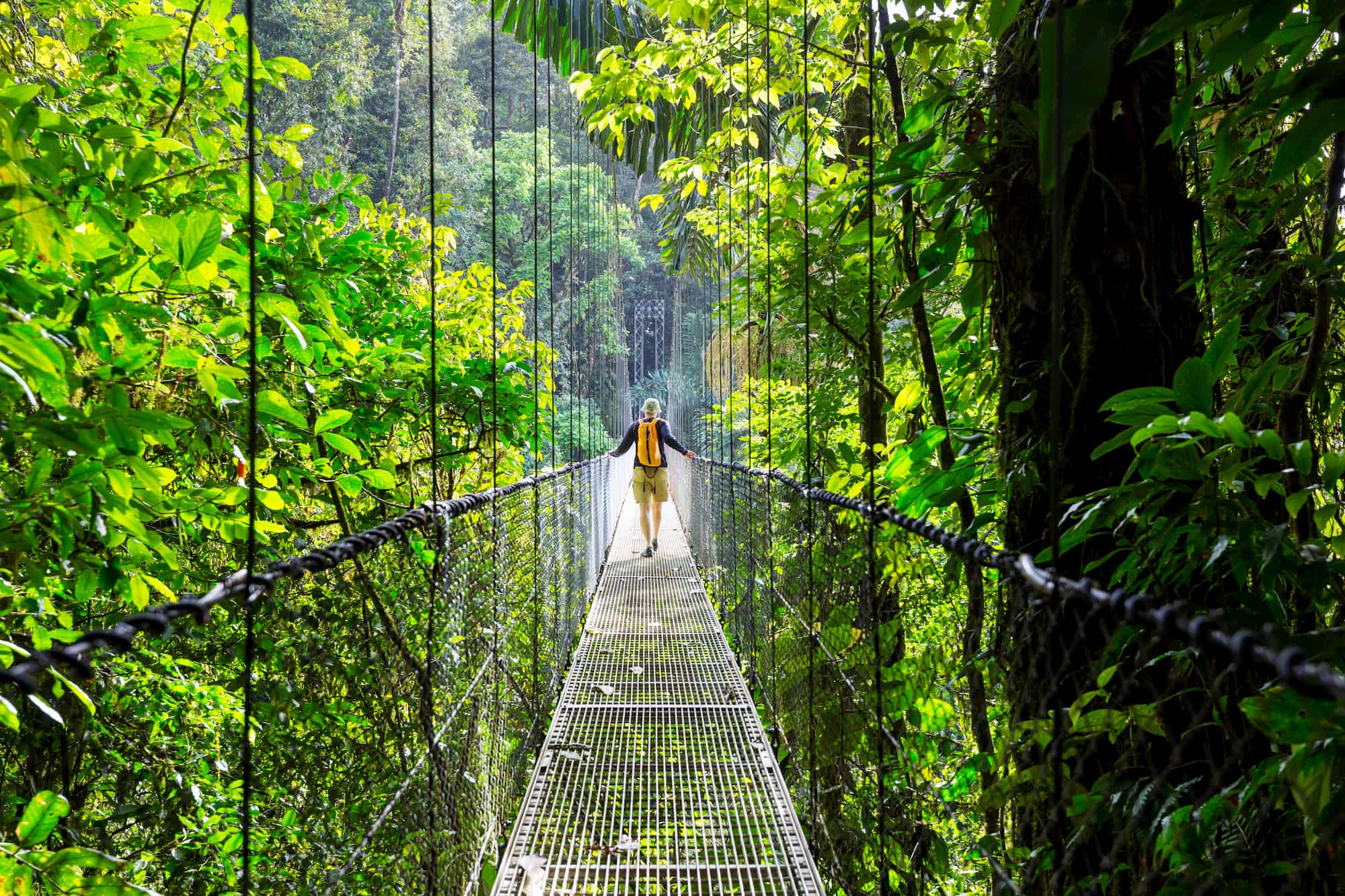Unveiling Ecotourism: A Sustainable Journey
How does ecotourism work – Ecotourism, a responsible form of travel that prioritizes conservation and community well-being, offers a unique approach to exploring the world while preserving its natural and cultural treasures. Dive into the intricacies of ecotourism, understanding its principles, implementation, and far-reaching impacts.
From identifying key stakeholders to developing sustainable plans and engaging local communities, ecotourism embraces a holistic approach to tourism. Its emphasis on marketing and promotion ensures that responsible travel practices reach a wider audience, fostering a greater appreciation for the environment and local cultures.
Understanding Ecotourism
Ecotourism is a form of responsible tourism that focuses on conserving the environment and supporting sustainable practices while enhancing the well-being of local communities. It adheres to the principles of minimizing ecological impact, respecting local cultures, and providing positive experiences for both visitors and hosts.
The goals of ecotourism include promoting environmental awareness, protecting biodiversity, supporting local economies, and fostering cross-cultural understanding. By engaging in activities that align with these objectives, ecotourism aims to create a positive impact on both the environment and the communities it visits.
Importance of Sustainability in Ecotourism
Sustainability is paramount in ecotourism as it ensures the long-term viability of the industry and the preservation of natural and cultural resources. It involves minimizing environmental impact through responsible waste management, reducing carbon emissions, and conserving water resources. Additionally, supporting local businesses, employing local guides, and respecting cultural traditions contribute to the economic and social sustainability of ecotourism.
Planning and Implementing Ecotourism Projects
Ecotourism projects involve careful planning and implementation to ensure their sustainability and positive impact on both the environment and local communities.
Identifying Key Stakeholders
Ecotourism planning requires the involvement of various stakeholders, including:
- Local communities: Whose participation is crucial for ensuring that the project aligns with their needs and values.
- Government agencies: Responsible for providing regulatory oversight and support.
- Conservation organizations: Which offer expertise in environmental protection and management.
- Tour operators: Who design and implement ecotourism experiences.
- Researchers: Who provide scientific data and insights to inform decision-making.
Developing an Ecotourism Plan
An ecotourism plan should Artikel the project’s goals, objectives, and strategies. It should include:
- Assessment of the natural and cultural resources of the area.
- Identification of potential ecotourism activities.
- Establishment of carrying capacity limits to prevent environmental degradation.
- Development of strategies for marketing and promotion.
- Implementation of monitoring and evaluation mechanisms to ensure sustainability.
Role of Local Communities
Local communities play a vital role in ecotourism development. Their involvement ensures that the project:
- Respects local traditions and customs.
- Provides economic benefits to the community.
- Creates opportunities for cultural exchange.
- Empowers local people to manage their natural resources sustainably.
Marketing and Promoting Ecotourism

Marketing and promotion are crucial for the success of ecotourism businesses. By effectively communicating the unique value proposition of ecotourism products and services, businesses can attract potential customers who are interested in responsible and sustainable travel experiences.
To effectively market and promote ecotourism, businesses should first identify their target markets. These markets typically include individuals and groups who are passionate about the environment, conservation, and responsible travel. They are often willing to pay a premium for experiences that align with their values.
Effective Marketing Strategies
- Content Marketing:Create valuable and informative content that educates potential customers about ecotourism and its benefits. This content can be distributed through blog posts, articles, videos, and social media.
- Social Media Marketing:Utilize social media platforms to engage with potential customers, share ecotourism-related content, and build a community of like-minded individuals.
- Email Marketing:Build an email list of potential customers and use it to send targeted email campaigns that promote ecotourism products and services.
- Partnerships:Collaborate with other businesses and organizations in the ecotourism industry to cross-promote products and services.
- Public Relations:Engage with the media to generate positive publicity for ecotourism businesses and initiatives.
Managing and Monitoring Ecotourism
Ecotourism management aims to balance conservation, economic development, and socio-cultural preservation. It involves planning, implementing, and monitoring tourism activities to minimize environmental impacts and maximize benefits for local communities.
Monitoring and Evaluation
Monitoring and evaluation are crucial for assessing the effectiveness of ecotourism projects and ensuring their sustainability. Regular data collection and analysis help identify areas for improvement, adjust management strategies, and demonstrate progress towards conservation goals.
Adaptive Management
Adaptive management is an iterative approach to ecotourism management that incorporates monitoring and evaluation findings. It allows managers to make informed decisions, adjust strategies, and respond to changing conditions, ensuring the long-term sustainability of ecotourism projects.
Economic and Social Impacts of Ecotourism: How Does Ecotourism Work
Ecotourism offers both economic and social benefits to local communities and the environment. Understanding these impacts is crucial for sustainable tourism development.
Positive Economic Impacts
- Job creation in various sectors such as hospitality, guiding, and conservation.
- Increased income for local businesses and entrepreneurs.
- Diversification of local economies, reducing reliance on traditional industries.
- Revenue generation for conservation efforts and protected areas.
- Infrastructure improvements, such as roads and trails, benefiting both tourists and local residents.
Social and Cultural Benefits, How does ecotourism work
- Preservation and revitalization of cultural heritage and traditions.
- Enhanced environmental awareness and education among visitors and local communities.
- Empowerment of local communities through participation in tourism decision-making.
- Promotion of cross-cultural understanding and exchange.
- Improved quality of life for local residents through access to education, healthcare, and other social services.
Potential Negative Impacts and Mitigation Strategies
Environmental Degradation
Implement strict environmental regulations, limit tourist numbers, and promote responsible tourism practices.
Cultural Commodification
Encourage authentic cultural experiences, respect local customs, and involve communities in tourism planning.
Economic Leakage
Ensure local ownership and management of tourism businesses, train local staff, and promote fair wages.
Social Displacement
Monitor tourism development, involve local communities in decision-making, and provide alternative livelihoods.
Crowding and Overuse
Manage tourist flows, establish carrying capacities, and promote responsible tourism practices.
Case Studies of Successful Ecotourism Initiatives

Ecotourism initiatives have been implemented worldwide, with varying degrees of success. By examining case studies of successful projects, we can identify the factors that contribute to their achievements and learn valuable lessons for future initiatives.
Successful ecotourism projects often share common characteristics, such as:
- Strong community involvement
- Conservation-oriented goals
- Economic benefits for local communities
- Effective marketing and promotion
- Ongoing monitoring and evaluation
Costa Rica
Costa Rica is a renowned ecotourism destination, with a long history of conservation and sustainable tourism practices. The country’s commitment to protecting its natural resources and promoting responsible tourism has resulted in a thriving ecotourism industry.
One of the key factors contributing to Costa Rica’s success in ecotourism is its strong community involvement. Local communities are actively involved in the planning and implementation of ecotourism projects, ensuring that the benefits are shared equitably.
Another important factor is Costa Rica’s focus on conservation. The country has established a comprehensive system of national parks and protected areas, which provide a safe haven for wildlife and natural habitats.
Costa Rica’s ecotourism industry has also benefited from effective marketing and promotion. The country has invested in promoting its natural beauty and cultural heritage, attracting tourists from around the world.
Galápagos Islands
The Galápagos Islands are a unique archipelago known for their pristine natural environment and abundant wildlife. Ecotourism plays a vital role in protecting the islands’ fragile ecosystem while providing economic benefits to the local community.
One of the key features of the Galápagos ecotourism model is its strict regulations and guidelines. Visitors are required to follow specific rules and regulations to minimize their impact on the environment.
Another important factor is the involvement of local communities in ecotourism. Local guides and tour operators are trained to provide visitors with a responsible and educational experience.
The Galápagos ecotourism industry has been successful in generating economic benefits for the local community. Tourism revenue has helped to fund conservation efforts and improve the quality of life for local residents.
Lessons Learned
The success of ecotourism projects in Costa Rica and the Galápagos Islands provides valuable lessons for future initiatives.
- Strong community involvement is essential for the long-term success of ecotourism projects.
- Conservation-oriented goals should be at the heart of any ecotourism initiative.
- Economic benefits for local communities can help to ensure the sustainability of ecotourism projects.
- Effective marketing and promotion can help to attract tourists and generate revenue.
- Ongoing monitoring and evaluation are essential for ensuring the success and sustainability of ecotourism projects.
Final Wrap-Up

Ecotourism emerges as a beacon of sustainable tourism, balancing economic growth with environmental protection. By embracing its principles, we empower local communities, preserve biodiversity, and foster a deeper connection with the natural world. As we continue to explore the transformative power of ecotourism, let us embrace its potential to create a more sustainable and equitable future for all.
Detailed FAQs
What are the key principles of ecotourism?
Ecotourism adheres to principles that minimize environmental impact, support local communities, and promote cultural preservation.
How can ecotourism benefit local communities?
Ecotourism creates economic opportunities, empowers local businesses, and supports the preservation of traditional practices and cultural heritage.
What role does sustainability play in ecotourism?
Sustainability is the cornerstone of ecotourism, ensuring that tourism activities do not compromise the integrity of natural ecosystems or the well-being of local communities.

